 Doctor-turned-IAS officer E. Ramesh Kumar is a workaholic. In charge of Sagar district in Madhya Pradesh, he feels that his job is a godsend to help people. ‘'I feel bad if somebody goes unhappy after meeting me; I try to help him in every possible manner,” says Ramesh, who gifted a sapling each to all petitioners who met him during the monsoon season when he was district collector of Khargone.
Doctor-turned-IAS officer E. Ramesh Kumar is a workaholic. In charge of Sagar district in Madhya Pradesh, he feels that his job is a godsend to help people. ‘'I feel bad if somebody goes unhappy after meeting me; I try to help him in every possible manner,” says Ramesh, who gifted a sapling each to all petitioners who met him during the monsoon season when he was district collector of Khargone.
Ramesh was born in a middle class family of Visakhapatnam, Andhra Pradesh. His father worked for the Railways and his mother was a Port Trust employee. He studied in Korukonda Sainik School and Andhra Medical College. Says Ramesh: “There was no other option before me. As my elder brother chose to become an engineer, my father asked me to become a doctor in order to guarantee a secure future before going in for the civil services exam.”
A strict disciplinarian, Ramesh does not claim to be an extraordinary bureaucrat. Instead, he believes in implementing routine development schemes extraordinarily. “It is in the implementation that the crux of all development scheme lies,” he says. He was first posted in the tribal-dominated Dindori district in MP and then in Khargone. He devised strategies to converge differentgovernment schemes for deprived people to bring a change to their lives.
When he was collector of Chhatarpur in the Bundelkhand region, he realised that young men were migrating as construction labourers because they were unskilled. With support from Infrastructure Leasing and Financial Services (ILFS) he started a residential coaching school where the youth were taught basic skills to find jobs in the textile industry. “In order to make boys straightaway employable, we got people from the industry to train them in specific jobs in a simulative atmosphere,” says Ramesh. “While we got them three months' training [free for poor and heavily subsidised for others], our people tied up with industries around Indore to arrange for their jobs. Since the manpower we offered them was specifically trained as per their requirement, they readily offered jobs.'' So far, 865 boys have landed jobs.
In May this year, when Ramesh was transferred to Sagar district, he replicated the initiative with some improvisation. He noticed that though Sagar was the headquarters of an infantry division, very few local people had Army jobs. “One of the reasons for the development of Punjab and Haryana was that people joined the Army and paramilitary forces. Those jobs gave a fixed income to their families while others freely engaged in agricultural activities.... Over the years, Punjab, which used to supply jawans, has taken a back seat and I feel that regions like Bundelkhand can substitute it if a proper environment is created among the youth.” In order to train the youth for the armed forces, he started the Shourya Sankalp project. Says Ramesh: “We take youth in the age group of 17 - 23. Those belonging to scheduled caste, scheduled tribe and below poverty line segments get free training while others have to pay for the food, which roughly comes around Rs:1,500 per month.”
During the three-month course, they are trained in English, mathematics, general knowledge and reasoning. Plus, they have weekly tests, and two hours each of physical training and games every day. “I have specially introduced a capsule of personality development which these boys severely need, as most of them come from a rural background,” says Ramesh, who used his clout to persuade the municipal corporation, health, education and tribal departments to contribute their expertise and share the expenses of the training programme.
Out of 124 youth who were trained, 69 participated in an Army recruitment camp and 42 cleared the physical test. “One of them was selected as a cook when he prepared a good omelette and gajar halwa,"says Ramesh. “After this we have decided to introduce training for various categories like barber, cook, driver and sweeper, where chances of getting selected are much higher.” According to Ramesh, “One poverty alleviation scheme cannot change lives of the poor. It has to be in a complete sense. I always target a few families instead of going after the whole village and then saturate them with all schemes in order to pull them out of the poverty web."
Ramesh knows how to make use of his clout as district collector. When he was in Khargone, the local Rotary Club invited him for an investiture ceremony. He told them that he would oblige provided they sponsored the surgeries of a dozen poor children with congenital heart defects. “I sponsored their stay and travel while the hospital expenses were borne by the Rotary Club and the wealthy people of the district,” he says. “I always do things from the available government resources so that these initiatives have sustainability and are institutionalised. That is why I believe in bringing all government schemes together,” says Ramesh. “I have learnt a lot from the field experience as an administrator.'' Probably, that was why he was invited to give a talk at the Lal Bahadur Shastri National Academy of Administration in Mussoorie, where IAS officers are trained.
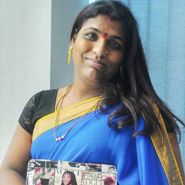 Amruta Soni was born in a Roman Catholic family of Solapur in Maharashtra as Paul. She has been working as advocacy officer for the Vihaan project in Chhattisgarh since 2013. Economically, she had no support from her family after class ten and was forced to leave home.
Amruta Soni was born in a Roman Catholic family of Solapur in Maharashtra as Paul. She has been working as advocacy officer for the Vihaan project in Chhattisgarh since 2013. Economically, she had no support from her family after class ten and was forced to leave home.

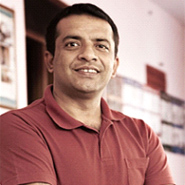 Popularly known as the Clothing Man, Anshu has done his Mass communications twice and masters in Economics. Starting as a freelance journalist, Anshu left a corporate job in 1998 and founded GOONJ with a mission to make clothing a matter of concern and to bring it among the list of subjects for the development sector. Anshu’s work with GOONJ goes to a core challenge of our times; the growing gap between the urban prosperity & rural poverty. His work has a game changing element in many ways; he has taken the menacing growth of urban waste and used it effectively and efficiently as a tool to trigger large scale development work on diverse issues; roads, water, environment, education, health etc. in some of the most backward and remote pockets of India. Not only is the so called urban waste addressing ignored basic needs it’s turning out to be a valuable asset for income generation. Bridging the massive gap of social and economic inequities between urban and rural India in an innovative way, Anshu has created a new dynamic focused on the receiver’s dignity rather than the donor’s pride.
Popularly known as the Clothing Man, Anshu has done his Mass communications twice and masters in Economics. Starting as a freelance journalist, Anshu left a corporate job in 1998 and founded GOONJ with a mission to make clothing a matter of concern and to bring it among the list of subjects for the development sector. Anshu’s work with GOONJ goes to a core challenge of our times; the growing gap between the urban prosperity & rural poverty. His work has a game changing element in many ways; he has taken the menacing growth of urban waste and used it effectively and efficiently as a tool to trigger large scale development work on diverse issues; roads, water, environment, education, health etc. in some of the most backward and remote pockets of India. Not only is the so called urban waste addressing ignored basic needs it’s turning out to be a valuable asset for income generation. Bridging the massive gap of social and economic inequities between urban and rural India in an innovative way, Anshu has created a new dynamic focused on the receiver’s dignity rather than the donor’s pride.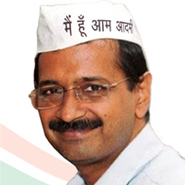 Arvind Kejriwal (born 16 August 1968) is an Indian politician who is the Chief Minister of Delhi since February 2015. He previously served as Chief Minister from December 2013 to February 2014, stepping down after 49 days. He is the national convener of the Aam Aadmi Party (AAP).
Arvind Kejriwal (born 16 August 1968) is an Indian politician who is the Chief Minister of Delhi since February 2015. He previously served as Chief Minister from December 2013 to February 2014, stepping down after 49 days. He is the national convener of the Aam Aadmi Party (AAP).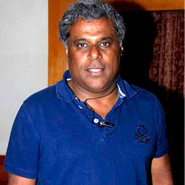 Ashish Vidyarthi is an Indian film actor known who works in multiple language films, predominantly in Bollywood, and Telugu cinema. He is noted for his antagonist characters. In 1995, he received the National Film Award for Best Supporting Actor, for Drohkaal. He moved to Delhi in 1969 and joined the Bharatiya Vidya Bhavan's Mehta Vidyalaya, where he won acclaim for his performances as an actor in dramatic and comedic roles.
Ashish Vidyarthi is an Indian film actor known who works in multiple language films, predominantly in Bollywood, and Telugu cinema. He is noted for his antagonist characters. In 1995, he received the National Film Award for Best Supporting Actor, for Drohkaal. He moved to Delhi in 1969 and joined the Bharatiya Vidya Bhavan's Mehta Vidyalaya, where he won acclaim for his performances as an actor in dramatic and comedic roles.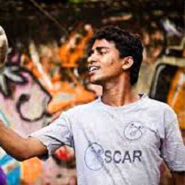 Ashok Rathod is the Founder and Director of OSCAR India Foundation, an organization which aims to prevent school drop-outs and encourage children to become responsible citizens.
Ashok Rathod is the Founder and Director of OSCAR India Foundation, an organization which aims to prevent school drop-outs and encourage children to become responsible citizens.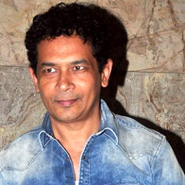 Atul Kulkarni is an Indian Actor born in Belgaum, Karnataka, India on 10th Sept 1965. He has worked in more than 60 films in 7 languages. An alumni of National School of Drama (N.S.D.), New Delhi, Atul has won many awards including 2 national awards. He enjoys the public and critical acclaim for his work not only nationally but also internationally. He is one of the very few actors who are also known for their articles, interviews and comments on social and political views.
Atul Kulkarni is an Indian Actor born in Belgaum, Karnataka, India on 10th Sept 1965. He has worked in more than 60 films in 7 languages. An alumni of National School of Drama (N.S.D.), New Delhi, Atul has won many awards including 2 national awards. He enjoys the public and critical acclaim for his work not only nationally but also internationally. He is one of the very few actors who are also known for their articles, interviews and comments on social and political views.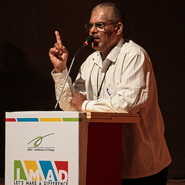 Mr. Bindumadhav Khire is an LGBTQ+ activist and also the founder and President of Samapathik Trust. He did his B.E in Computer Science in 1990. He has 10 years of IT experience of which around quarter to 4 years in USA. Came back to India for good in early 2000 and gave up his career in 2001. With the help of Ashok Rao Kavi and Humsafar Trust, formed his NGO - Samapathik Trust in September 2002. For the past 15 years Samapathik Trust has worked on issues of advocacy and health of LGBTHI (stands for, Lesbian-Gay-Bisexual-Transgender-Hijra-Intersex) communities.
Mr. Bindumadhav Khire is an LGBTQ+ activist and also the founder and President of Samapathik Trust. He did his B.E in Computer Science in 1990. He has 10 years of IT experience of which around quarter to 4 years in USA. Came back to India for good in early 2000 and gave up his career in 2001. With the help of Ashok Rao Kavi and Humsafar Trust, formed his NGO - Samapathik Trust in September 2002. For the past 15 years Samapathik Trust has worked on issues of advocacy and health of LGBTHI (stands for, Lesbian-Gay-Bisexual-Transgender-Hijra-Intersex) communities. CA Ramnath Iyer, popularly known amongst students as Iyer Sir, entered the profession of teaching in the year 1985. He taught in Podar College for a year before teaching in various coaching classes across Mumbai. After teaching for more than 10 years at various educational institutions, he launched Iyer Commerce Classes as his own venture to provide his students an edge and expertise in the field of Commerce. His unique teaching style laced with humour and anecdotes, takes away the monotony of learning. He believes in keeping it Simple and that sets him apart from the rest.
CA Ramnath Iyer, popularly known amongst students as Iyer Sir, entered the profession of teaching in the year 1985. He taught in Podar College for a year before teaching in various coaching classes across Mumbai. After teaching for more than 10 years at various educational institutions, he launched Iyer Commerce Classes as his own venture to provide his students an edge and expertise in the field of Commerce. His unique teaching style laced with humour and anecdotes, takes away the monotony of learning. He believes in keeping it Simple and that sets him apart from the rest.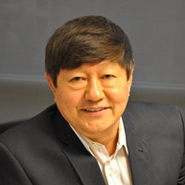 Colonel Lalit Rai, is a former officer of the Indian Army who was decorated in the Kargil War. As the commanding officer (CO) of 1/11 Gorkha Rifles, he was tasked with capturing the strategic heights of Khalubar in the Batalik sub-sector during the Kargil War.
Colonel Lalit Rai, is a former officer of the Indian Army who was decorated in the Kargil War. As the commanding officer (CO) of 1/11 Gorkha Rifles, he was tasked with capturing the strategic heights of Khalubar in the Batalik sub-sector during the Kargil War.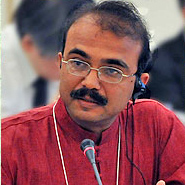 Mr. Dhaval Patel is a founder of Vidyanagar Nature Club, a grass root NGOs working for the cause of environment. Mr. Patel is associated with many organizations like Friends of the Earth, World Wildlife Fund, and Green Peace among others. He is also Co-opted Member of Animal Welfare Board of India of Government of India. Mr. Patel working areas are inclusive of community based environmental programs, wildlife conservation through research, sustainable education programs at grass root levels and schools, close to nature hobby development efforts and programs for reducing pollution, eco-friendly drives, tree plantation programs and much more.
Mr. Dhaval Patel is a founder of Vidyanagar Nature Club, a grass root NGOs working for the cause of environment. Mr. Patel is associated with many organizations like Friends of the Earth, World Wildlife Fund, and Green Peace among others. He is also Co-opted Member of Animal Welfare Board of India of Government of India. Mr. Patel working areas are inclusive of community based environmental programs, wildlife conservation through research, sustainable education programs at grass root levels and schools, close to nature hobby development efforts and programs for reducing pollution, eco-friendly drives, tree plantation programs and much more.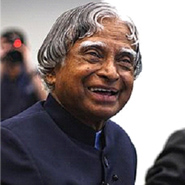 Avul Pakir Jainulabdeen was the 11th President of India from 2002 to 2007. A career scientist turned politician, Kalam was born and raised in Rameswaram, Tamil Nadu, and studied physics and aerospace engineering. He spent the next four decades as a scientist and science administrator, mainly at the Defence Research and Development Organisation (DRDO) and Indian Space Research Organisation (ISRO) and was intimately involved in India's civilian space program and military missile development efforts.
Avul Pakir Jainulabdeen was the 11th President of India from 2002 to 2007. A career scientist turned politician, Kalam was born and raised in Rameswaram, Tamil Nadu, and studied physics and aerospace engineering. He spent the next four decades as a scientist and science administrator, mainly at the Defence Research and Development Organisation (DRDO) and Indian Space Research Organisation (ISRO) and was intimately involved in India's civilian space program and military missile development efforts.
 Doctor-turned-IAS officer E. Ramesh Kumar is a workaholic. In charge of Sagar district in Madhya Pradesh, he feels that his job is a godsend to help people. ‘'I feel bad if somebody goes unhappy after meeting me; I try to help him in every possible manner,” says Ramesh, who gifted a sapling each to all petitioners who met him during the monsoon season when he was district collector of Khargone.
Doctor-turned-IAS officer E. Ramesh Kumar is a workaholic. In charge of Sagar district in Madhya Pradesh, he feels that his job is a godsend to help people. ‘'I feel bad if somebody goes unhappy after meeting me; I try to help him in every possible manner,” says Ramesh, who gifted a sapling each to all petitioners who met him during the monsoon season when he was district collector of Khargone. 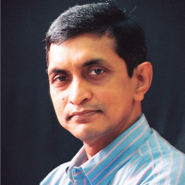 Nagabhairava Jaya Prakash Narayana (born 14 January 1956), also known as J.P., is an Indian politician. A former physician, J.P. is a political reformer and columnist. He is the founder and the President of Lok Satta Party, and was a Member of the Legislative Assembly from Kukatpally constituency Andhra Pradesh in south India.[In May 2014, he contested from Malkajgiri as an Member of Parliament and lost to TDP candidate Ch Malla Reddy.
Nagabhairava Jaya Prakash Narayana (born 14 January 1956), also known as J.P., is an Indian politician. A former physician, J.P. is a political reformer and columnist. He is the founder and the President of Lok Satta Party, and was a Member of the Legislative Assembly from Kukatpally constituency Andhra Pradesh in south India.[In May 2014, he contested from Malkajgiri as an Member of Parliament and lost to TDP candidate Ch Malla Reddy.


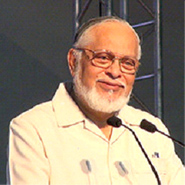 Dr. Lusito D’Souza is one of the leading Oncologists with several years of experience and distinguished achievements. He received the Karmayogi Puraskar Award for 2009, from the Bombay Medical Aid Foundation. He was the Secretary of the Clinical Research Committee at the Tata Memorial Hospital for several years and was Associated with several Clinical trials as Principal/Co-investigator at the Tata Memorial Hospital and the Shanti Avedna Sadan, Mumbai. He has contributed more than seventy publications in the field of Oncology in national and international journals and is the Associate Editor of the Indian Journal of Cancer.
Dr. Lusito D’Souza is one of the leading Oncologists with several years of experience and distinguished achievements. He received the Karmayogi Puraskar Award for 2009, from the Bombay Medical Aid Foundation. He was the Secretary of the Clinical Research Committee at the Tata Memorial Hospital for several years and was Associated with several Clinical trials as Principal/Co-investigator at the Tata Memorial Hospital and the Shanti Avedna Sadan, Mumbai. He has contributed more than seventy publications in the field of Oncology in national and international journals and is the Associate Editor of the Indian Journal of Cancer.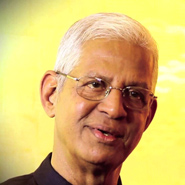 Dr. M B Athreya holds a Doctorate in Business Administration from the Harvard University. He was a Ford Fellow at Harvard; and a Hoover Fellow at the Stanford Business School. Before going to the US, Dr. Athreya had worked with a British MNC, in India, as a qualified Cost Accountant. He was a Gold Medallist in the Costing Examinations – Intermediate and Final. His first degree is in Mathematical Statistics. With this blend of Strategy and HR from his Harvard training, and Finance & QM from his earlier experiences, Dr. Athreya has been a sought after consultant to MNCs, especially those focussing on the fast growing emerging markets of Asia Pacific. He has been advising clients on Vision, Mission, Strategy, Values, HRD and OD.
Dr. M B Athreya holds a Doctorate in Business Administration from the Harvard University. He was a Ford Fellow at Harvard; and a Hoover Fellow at the Stanford Business School. Before going to the US, Dr. Athreya had worked with a British MNC, in India, as a qualified Cost Accountant. He was a Gold Medallist in the Costing Examinations – Intermediate and Final. His first degree is in Mathematical Statistics. With this blend of Strategy and HR from his Harvard training, and Finance & QM from his earlier experiences, Dr. Athreya has been a sought after consultant to MNCs, especially those focussing on the fast growing emerging markets of Asia Pacific. He has been advising clients on Vision, Mission, Strategy, Values, HRD and OD.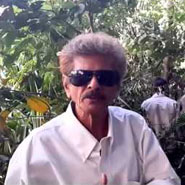 Dr Nand Kumar Moghe, a retired Forest Officer is a Mumbai based environmentalist.
Dr Nand Kumar Moghe, a retired Forest Officer is a Mumbai based environmentalist. Faud Lokhandwala, born in Dhauraji, Gujarat, and later resident of Junagadh, was a man driven by a passion for hygiene and a desire to contribute to his homeland. Living in America for over 25 years, he was struck by a sarcastic news report mocking India's nuclear capabilities while highlighting its lack of basic amenities like public toilets. This sparked a fire within him and he returned to India determined to make a difference.
Faud Lokhandwala, born in Dhauraji, Gujarat, and later resident of Junagadh, was a man driven by a passion for hygiene and a desire to contribute to his homeland. Living in America for over 25 years, he was struck by a sarcastic news report mocking India's nuclear capabilities while highlighting its lack of basic amenities like public toilets. This sparked a fire within him and he returned to India determined to make a difference.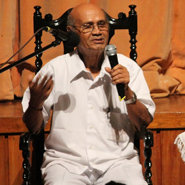 Mr.Gour Hari Das has been a part of freedom struggle against the Biritish Raj. His childhood was spent as a part of Gandhiji’s vanar sena, for which he was jailed in Balasore, Orrisa, his hometown. Blessed by Mahatma Gandhi himself, Mr. Das has followed and lived a life on the Gandhiyan teachings and values.
Mr.Gour Hari Das has been a part of freedom struggle against the Biritish Raj. His childhood was spent as a part of Gandhiji’s vanar sena, for which he was jailed in Balasore, Orrisa, his hometown. Blessed by Mahatma Gandhi himself, Mr. Das has followed and lived a life on the Gandhiyan teachings and values.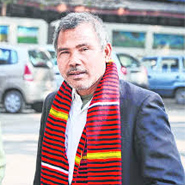 Padma Shri Jadav "Molai" Payeng born in 1963 is a Mishing tribe environmental activist and forestry worker from Jorhat, India. Over the course of several decades, he planted and tended trees on a sandbar of the river Brahmaputra turning it into a forest reserve. The forest, called Molai forest after him, is located near Kokilamukh of Jorhat, Assam, India and encompasses an area of about 1,360 acres / 550 hectares. In 2015, he was honoured with Padma Shri, the fourth highest civilian award in India.
Padma Shri Jadav "Molai" Payeng born in 1963 is a Mishing tribe environmental activist and forestry worker from Jorhat, India. Over the course of several decades, he planted and tended trees on a sandbar of the river Brahmaputra turning it into a forest reserve. The forest, called Molai forest after him, is located near Kokilamukh of Jorhat, Assam, India and encompasses an area of about 1,360 acres / 550 hectares. In 2015, he was honoured with Padma Shri, the fourth highest civilian award in India.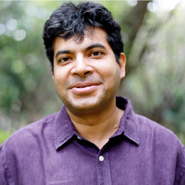 Mr. Jaideep Verma is an Indian writer, screenwriter and filmmaker who has made 3 feature films. The most prominent one being “Leaving Home - The Life and music of Indian Ocean”
Mr. Jaideep Verma is an Indian writer, screenwriter and filmmaker who has made 3 feature films. The most prominent one being “Leaving Home - The Life and music of Indian Ocean”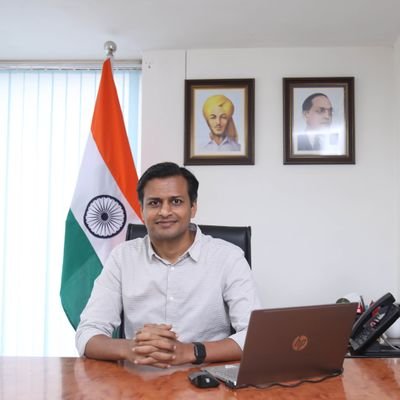 Mr Jasmine Shah has been the Vice Chairperson of the Dialogue and Development Commission, a position holding the rank of a Minister in the Government of NCT of Delhi, since November 2018. Mr Shah has broad experience working on urban governance and policy issues and has been advising the Government of NCT of Delhi since 2016 on environment, transport, education, and budget transparency reforms.
Mr Jasmine Shah has been the Vice Chairperson of the Dialogue and Development Commission, a position holding the rank of a Minister in the Government of NCT of Delhi, since November 2018. Mr Shah has broad experience working on urban governance and policy issues and has been advising the Government of NCT of Delhi since 2016 on environment, transport, education, and budget transparency reforms.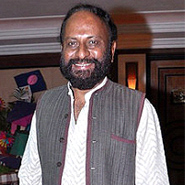 Ketan Mehta is an Indian film director, who has also directed documentaries and television serials since many years. During his career he has made ten feature films, seven documentaries and two television serials – Captain Vyom and Mr. Yogi. His repertoire of themes includes comedy, satire, romance, violence and rebellion
Ketan Mehta is an Indian film director, who has also directed documentaries and television serials since many years. During his career he has made ten feature films, seven documentaries and two television serials – Captain Vyom and Mr. Yogi. His repertoire of themes includes comedy, satire, romance, violence and rebellion Kiran Bedi is an Indian politician, social activist, former tennis player and a retired police officer. Bedi joined the Indian Police Service (IPS) in 1972, becoming its first woman officer.
Kiran Bedi is an Indian politician, social activist, former tennis player and a retired police officer. Bedi joined the Indian Police Service (IPS) in 1972, becoming its first woman officer.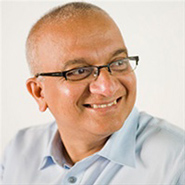 Madhu Dandavate was an Indian politician. During 1970-71 he was member of Maharashtra Legislative Council. From 1971 to 1990 he was an M.P., elected to the Lok Sabha for 5 times consecutively from Rajapur in Konkan, Maharashtra. He was one of the prominent opposition leaders when Indira Gandhi and Rajiv Gandhi were the Prime Ministers.
Madhu Dandavate was an Indian politician. During 1970-71 he was member of Maharashtra Legislative Council. From 1971 to 1990 he was an M.P., elected to the Lok Sabha for 5 times consecutively from Rajapur in Konkan, Maharashtra. He was one of the prominent opposition leaders when Indira Gandhi and Rajiv Gandhi were the Prime Ministers. Mrs. Madhuri Sarode Sharma is a rebel, a change maker and someone who stood against the odds and set an example for the entire transgender community.
Mrs. Madhuri Sarode Sharma is a rebel, a change maker and someone who stood against the odds and set an example for the entire transgender community.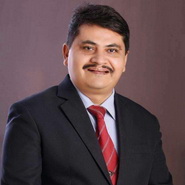 Mr. Mahesh M. Bhagwat is an IPS Officer of 1995 batch and currently he is the commissioner of police, Rachakonda commisionerate Telangana.
Mr. Mahesh M. Bhagwat is an IPS Officer of 1995 batch and currently he is the commissioner of police, Rachakonda commisionerate Telangana.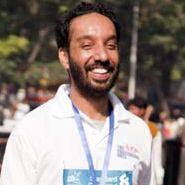 Major Devender Pal Singh is a Kargil war veteran popularly known as India’s Blade Runner. He hails from a village near Ambala, Punjab. He was commission from IMA (Indian Military Academy) Dehradun in December 1997 and joined the unit, 7 Dogra which was already deployed at LOC when Operation Vijay, commonly known as Kargil war started in May 1999. It was during this operation he was deployed on one of the forward post located bang on the LOC.
Major Devender Pal Singh is a Kargil war veteran popularly known as India’s Blade Runner. He hails from a village near Ambala, Punjab. He was commission from IMA (Indian Military Academy) Dehradun in December 1997 and joined the unit, 7 Dogra which was already deployed at LOC when Operation Vijay, commonly known as Kargil war started in May 1999. It was during this operation he was deployed on one of the forward post located bang on the LOC.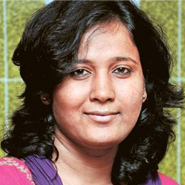 Mittal Patel, a young gold medallist in journalism from Gujarat University, has been trying to give a voice to nomadic tribes for the last six years.
Mittal Patel, a young gold medallist in journalism from Gujarat University, has been trying to give a voice to nomadic tribes for the last six years.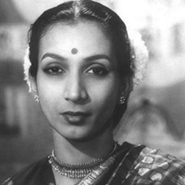 “The real self of an artise lies is art, so when an artist performs, all the pain, trauma, and tensiongets released through art, be it dancing, painting, singing, writing or even martial arts”
“The real self of an artise lies is art, so when an artist performs, all the pain, trauma, and tensiongets released through art, be it dancing, painting, singing, writing or even martial arts” A figure of resilience, determination, and unyielding spirit. His life story is a testimony to the power of overcoming adversity through sheer willpower and dedication. Born on December 15th, 1979, Nitin’s journey from a modest background to becoming an icon in the world of endurance sports is nothing short of remarkable.
A figure of resilience, determination, and unyielding spirit. His life story is a testimony to the power of overcoming adversity through sheer willpower and dedication. Born on December 15th, 1979, Nitin’s journey from a modest background to becoming an icon in the world of endurance sports is nothing short of remarkable.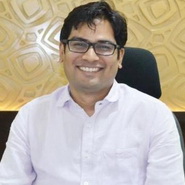 The first IAS officer from Chhattisgarh, Mr. Om Prakash Chaudhary is the collector of Raipur. Mr. Chaudhary, a man attributed for his modesty belongs to a conventional background. At a very early age of 8, he lost his father. Grandfather being a farmer and mother being a teacher had worked tirelessly to make him study. As a child Mr. Chaudhary always used to look at the collector office and think of being there in future. He dreamt of it and he achieved it. Hence he believes, dream big and give all of yourself to it.
The first IAS officer from Chhattisgarh, Mr. Om Prakash Chaudhary is the collector of Raipur. Mr. Chaudhary, a man attributed for his modesty belongs to a conventional background. At a very early age of 8, he lost his father. Grandfather being a farmer and mother being a teacher had worked tirelessly to make him study. As a child Mr. Chaudhary always used to look at the collector office and think of being there in future. He dreamt of it and he achieved it. Hence he believes, dream big and give all of yourself to it.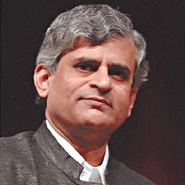 Palagummi Sainath is an Indian journalist and photojournalist who focuses on social problems, rural affairs, poverty and the aftermath of globalization in India He was the Rural Affairs Editor at The Hindu before resigning in 2014, and the website India Together has been archiving some of his work in The Hindu daily for the past six years. He is also the founding editor of the People's Archive of Rural India.
Palagummi Sainath is an Indian journalist and photojournalist who focuses on social problems, rural affairs, poverty and the aftermath of globalization in India He was the Rural Affairs Editor at The Hindu before resigning in 2014, and the website India Together has been archiving some of his work in The Hindu daily for the past six years. He is also the founding editor of the People's Archive of Rural India.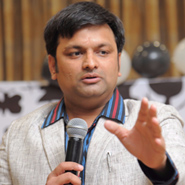 Pawan Sarda is third generation village bred entrepreneur cum creativity coach. Brought up in a house with 25 others of the 'giant' joint-family. MICA enabled the creativity & family business provided the wisdom in entrepreneurship. Breeding a dual life of an entrepreneur-teacher for last 10 years. Being mentored by my 8 year old monk-like daughter Lipi. Books, cricket, gazals, carrom, music & farming punctuate his routine. A holistic mix of Laxmi (Wealth) & Saraswati (Wisdom). The 'maarwari' in him brings the quality of value based wealth creation. The 'intellectual' in him brings the practical/creative wisdom needed to thrive in this 'tech doped & attention spilled age' where 'everyone knows everything & everyone'. He is a thinker, writer and speaker on subjects such as relationships, life skills, personal-philosophy & public discourse. He lives in Nagpur & can be reached on
Pawan Sarda is third generation village bred entrepreneur cum creativity coach. Brought up in a house with 25 others of the 'giant' joint-family. MICA enabled the creativity & family business provided the wisdom in entrepreneurship. Breeding a dual life of an entrepreneur-teacher for last 10 years. Being mentored by my 8 year old monk-like daughter Lipi. Books, cricket, gazals, carrom, music & farming punctuate his routine. A holistic mix of Laxmi (Wealth) & Saraswati (Wisdom). The 'maarwari' in him brings the quality of value based wealth creation. The 'intellectual' in him brings the practical/creative wisdom needed to thrive in this 'tech doped & attention spilled age' where 'everyone knows everything & everyone'. He is a thinker, writer and speaker on subjects such as relationships, life skills, personal-philosophy & public discourse. He lives in Nagpur & can be reached on 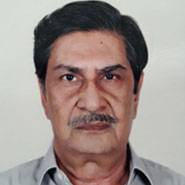 Shri Prabhat Kumar is a former governor of Jharkhand and a former Cabinet secretary in the Government of India. This is the highest position in Civil Services He was born and brought up in Allahabad, Uttar Pradesh. He is topper of the IAS batch of 1963.
Shri Prabhat Kumar is a former governor of Jharkhand and a former Cabinet secretary in the Government of India. This is the highest position in Civil Services He was born and brought up in Allahabad, Uttar Pradesh. He is topper of the IAS batch of 1963.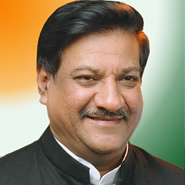
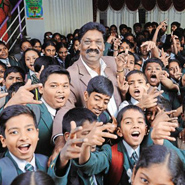 Mr Raja Nayak Born in a poor Dalit migrated family from a village of Karnataka, Raja Nayak and his four siblings were deprived of minimum needs of childhood as his father was an aloof person who never bothered to take care of the needs of his offspring. His mother who was a housewife fought throughout her life to fund her children’s school needs by pawning whatever jewellery she had at her disposal. At the age of 16, he dropped out from school and was wandering with his Punjabi friend Deepak in the streets of the city of Bengaluru without having any focus on what is his life’s purpose. Both of them were like birds of the same feather as they had flunked in X exams and were confused about future.
Mr Raja Nayak Born in a poor Dalit migrated family from a village of Karnataka, Raja Nayak and his four siblings were deprived of minimum needs of childhood as his father was an aloof person who never bothered to take care of the needs of his offspring. His mother who was a housewife fought throughout her life to fund her children’s school needs by pawning whatever jewellery she had at her disposal. At the age of 16, he dropped out from school and was wandering with his Punjabi friend Deepak in the streets of the city of Bengaluru without having any focus on what is his life’s purpose. Both of them were like birds of the same feather as they had flunked in X exams and were confused about future.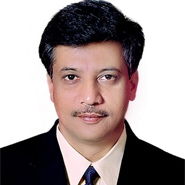 >Mr. Rajendra Dinkarrao Pawar born & brought up in Baramati (Pune) in Agrarian family under the parentship of father Late Padamashree Dr. Appasaheb Pawar who had spent his entire life in strengthening and empowering rural farming community and their families by all means.
>Mr. Rajendra Dinkarrao Pawar born & brought up in Baramati (Pune) in Agrarian family under the parentship of father Late Padamashree Dr. Appasaheb Pawar who had spent his entire life in strengthening and empowering rural farming community and their families by all means.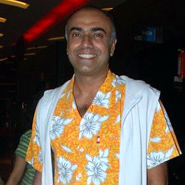 Rajit Kapur is an Indian film and theatre actor as well as director. He is known for his award-winning portrayal of Mahatma Gandhi in the 1996 film, The Making of the Mahatma, of the protagonist Unni in the Malayalam film Agnisakshi, and of the fictional detective Byomkesh Bakshi in the eponymous television series directed by Basu Chatterjee and broadcast on Doordarshan.
Rajit Kapur is an Indian film and theatre actor as well as director. He is known for his award-winning portrayal of Mahatma Gandhi in the 1996 film, The Making of the Mahatma, of the protagonist Unni in the Malayalam film Agnisakshi, and of the fictional detective Byomkesh Bakshi in the eponymous television series directed by Basu Chatterjee and broadcast on Doordarshan.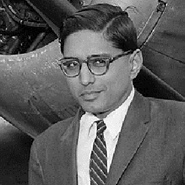 Rajmohan Gandhi (born 1935) in New Delhi, is a biographer and grandson of Mahatma Gandhi and Chakravarthi Rajagopalachari, and a research professor at the Center for South Asian and Middle Eastern Studies, University of Illinois at Urbana-Champaign, USA. He is also a Scholar in residence at Indian Institute of Technology Gandhinagar.
Rajmohan Gandhi (born 1935) in New Delhi, is a biographer and grandson of Mahatma Gandhi and Chakravarthi Rajagopalachari, and a research professor at the Center for South Asian and Middle Eastern Studies, University of Illinois at Urbana-Champaign, USA. He is also a Scholar in residence at Indian Institute of Technology Gandhinagar.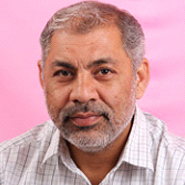 A former Taekwondo instructor, Ravi Kalra dedicated his life to serving the downtrodden, the poor, the mentally disabled and other people who have been rejected and left to fend for themselves. Having founded the Earth Saviours Foundation in the year 2008, he provides these people with free food, shelter, clothes, medicines and access to basic amenities. It is an internationally recognised NGO located in Delhi. A well known Karma Yogi, social activist and environmentalist, he was awarded the ‘Sardar Vallabhbhai Patel International Prestigious Award’ in the year 2012 for Excellence in selfless humanitarian Service. In addition to attending to the needy, he has also conducted campaigns for "No honking" and strongly advocates the use of electric crematoriums in place of a funeral pyre.
A former Taekwondo instructor, Ravi Kalra dedicated his life to serving the downtrodden, the poor, the mentally disabled and other people who have been rejected and left to fend for themselves. Having founded the Earth Saviours Foundation in the year 2008, he provides these people with free food, shelter, clothes, medicines and access to basic amenities. It is an internationally recognised NGO located in Delhi. A well known Karma Yogi, social activist and environmentalist, he was awarded the ‘Sardar Vallabhbhai Patel International Prestigious Award’ in the year 2012 for Excellence in selfless humanitarian Service. In addition to attending to the needy, he has also conducted campaigns for "No honking" and strongly advocates the use of electric crematoriums in place of a funeral pyre. A Pune based Chemical Engineer by profession chose the path of social entrepreneurship marrying her aspirations for building a business with providing employment to thousands of farmers in Maharashtra. After working for seven years in the food and beverage industry, there came a point in Mrs. Reema’s career where she had an inner calling to work for and with the rural communities.
A Pune based Chemical Engineer by profession chose the path of social entrepreneurship marrying her aspirations for building a business with providing employment to thousands of farmers in Maharashtra. After working for seven years in the food and beverage industry, there came a point in Mrs. Reema’s career where she had an inner calling to work for and with the rural communities. Ritu Biyani is the best example of an extraordinary journey made by an ordinary woman in a successful manner. Her journey to every corner of India had a strong message related to Breast cancer awareness among women. Her passion for traveling helped her to complete this particular mission in a successful manner. Her effort was an eye opener for women who are illiterate and never have heard about cancer in general. She also rightly spread her message among the urban and rural women who were actually suffering in silence without any medical assistance. She teaches people how to fight cancer with preventive measures in the right direction.
Ritu Biyani is the best example of an extraordinary journey made by an ordinary woman in a successful manner. Her journey to every corner of India had a strong message related to Breast cancer awareness among women. Her passion for traveling helped her to complete this particular mission in a successful manner. Her effort was an eye opener for women who are illiterate and never have heard about cancer in general. She also rightly spread her message among the urban and rural women who were actually suffering in silence without any medical assistance. She teaches people how to fight cancer with preventive measures in the right direction.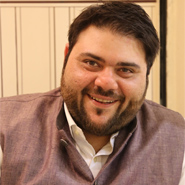 Riyaaz Amlani is a Mumbai based restaurateur, recognised for having imagined and realised some of India's most famous food and beverage brands. With a Masters in Entertainment Management from UCLA in America, Riyaaz created the iconic coffee house brand Mocha more than 14 years ago, followed by Smoke House Deli, Salt Water Cafe, Smoke House Grill, Salt Water Grill and Smoke House Room. Today, he is the CEO and MD of Impresario Entertainment & Hospitality, the company, he founded and he recently found more success with a casual dining brand, Social. Riyaaz is also the first restareteur to create a casual working space within his restaurants, of which Social is the finest example.
Riyaaz Amlani is a Mumbai based restaurateur, recognised for having imagined and realised some of India's most famous food and beverage brands. With a Masters in Entertainment Management from UCLA in America, Riyaaz created the iconic coffee house brand Mocha more than 14 years ago, followed by Smoke House Deli, Salt Water Cafe, Smoke House Grill, Salt Water Grill and Smoke House Room. Today, he is the CEO and MD of Impresario Entertainment & Hospitality, the company, he founded and he recently found more success with a casual dining brand, Social. Riyaaz is also the first restareteur to create a casual working space within his restaurants, of which Social is the finest example.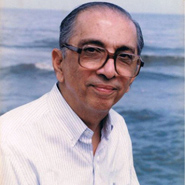 Russi M. Lala is the author known for his chronicles of the Tatas. He graduated with History Honours from Bombay University. Journalism was his passion from his childhood. “The urge for expression marks the beginning of writing” says Mr Lala in his autobiography. And it was this urge that made him write letters to newspapers during his teens – about topics ranging from cruelty to animals, to Gandhi and Roosevelt. Establishing and heading the first Indian book publishing house in London was a turning point for Mr. Lala. It was here that he got a deeper understanding of Moral Re-Armament (MRA), subsequently renamed as Initiatives of Change, besides life and human nature. The discipline of an early morning ‘quiet time’ that the author calls ‘the secret of life’ was shaped during this period.
Russi M. Lala is the author known for his chronicles of the Tatas. He graduated with History Honours from Bombay University. Journalism was his passion from his childhood. “The urge for expression marks the beginning of writing” says Mr Lala in his autobiography. And it was this urge that made him write letters to newspapers during his teens – about topics ranging from cruelty to animals, to Gandhi and Roosevelt. Establishing and heading the first Indian book publishing house in London was a turning point for Mr. Lala. It was here that he got a deeper understanding of Moral Re-Armament (MRA), subsequently renamed as Initiatives of Change, besides life and human nature. The discipline of an early morning ‘quiet time’ that the author calls ‘the secret of life’ was shaped during this period.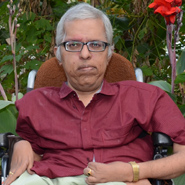 S. Sankara Raman, born 19-05-1962. Studied Bachelor of Commerce, from Ranchi University - June 1983 and become Gold medallist Chartered Accountant in August 1985. He is social entrepreneur Secretary - Amar Seva Sangam and Auditor.
S. Sankara Raman, born 19-05-1962. Studied Bachelor of Commerce, from Ranchi University - June 1983 and become Gold medallist Chartered Accountant in August 1985. He is social entrepreneur Secretary - Amar Seva Sangam and Auditor.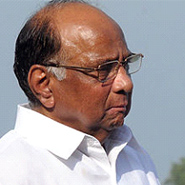 Sharad Govindrao Pawar is an Indian politician who serves as the president of the Nationalist Congress Party which he founded in 1999, after separating from the Indian National Congress. He previously served as the Chief Minister of Maharashtra on three separate occasions and held the posts of Minister of Defence and Minister of Agriculture in the Government of India. Pawar hails from the town of Baramati in the Pune district of Maharashtra. He is a member of the Rajya Sabha where he leads the NCP delegation. He holds a position of prominence in national politics as well as the regional politics of Maharashtra.
Sharad Govindrao Pawar is an Indian politician who serves as the president of the Nationalist Congress Party which he founded in 1999, after separating from the Indian National Congress. He previously served as the Chief Minister of Maharashtra on three separate occasions and held the posts of Minister of Defence and Minister of Agriculture in the Government of India. Pawar hails from the town of Baramati in the Pune district of Maharashtra. He is a member of the Rajya Sabha where he leads the NCP delegation. He holds a position of prominence in national politics as well as the regional politics of Maharashtra. Shital Mahajan also known as Queen of Sky, Jump Queen, Flying Bird is an Indian extreme sportsperson, skydiver and the holder of Six World records and 19 National records in the sport.
Shital Mahajan also known as Queen of Sky, Jump Queen, Flying Bird is an Indian extreme sportsperson, skydiver and the holder of Six World records and 19 National records in the sport.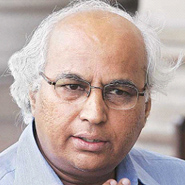 Sudheendra Kulkarni is an Indian politician and columnist and head of Observer Research Foundation.
Sudheendra Kulkarni is an Indian politician and columnist and head of Observer Research Foundation.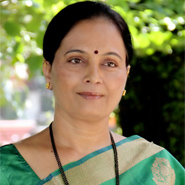 Mrs. Sunanda Rajendra Pawar popularly known as Sunandatai, working in the field of girls education and women empowerment.
Mrs. Sunanda Rajendra Pawar popularly known as Sunandatai, working in the field of girls education and women empowerment. Mr. Sunil D. Mathur born in New Delhi, India is an Chief Executive Officer, Managing Director, Executive Director of Siemens Limited. He has been appointed to the position of Chief Executive Officer, Managing Director of the Company with effective January 1, 2014. He is a member of The Institute of Chartered Accountants of India. He has been working with Siemens for over 20 years and has held various senior level positions in Siemens group and was the CFO of Siemens Electrium Ltd., UK. He is experience in Finance , Merger & Acquisition, Business Management and Treasury & Accounts.
Mr. Sunil D. Mathur born in New Delhi, India is an Chief Executive Officer, Managing Director, Executive Director of Siemens Limited. He has been appointed to the position of Chief Executive Officer, Managing Director of the Company with effective January 1, 2014. He is a member of The Institute of Chartered Accountants of India. He has been working with Siemens for over 20 years and has held various senior level positions in Siemens group and was the CFO of Siemens Electrium Ltd., UK. He is experience in Finance , Merger & Acquisition, Business Management and Treasury & Accounts.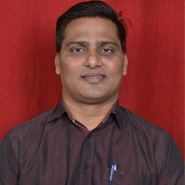 Sunil Yadav's story is as universally inspiring as it is real. A BMC scavenger by profession, Mr Sunil Yadav is also a widely acclaimed academic, having successfully achieved a BA in Journalism, an MA in Globalisation and Labour, and an MPhil-PhD in Social Exclusion and Inclusive Policy from Tata Institute of Social Sciences (TISS). Hailing from an extreme humble background and having grown up in a hostile environment in Central Mumbai slums, nothing deterred Mr Yadav, not even failing to clear his 10th standard exams and having to take up the scavenging profession with the BMC to support his family, could stop him from achieving his goal of studying and completing multiple degrees.
Sunil Yadav's story is as universally inspiring as it is real. A BMC scavenger by profession, Mr Sunil Yadav is also a widely acclaimed academic, having successfully achieved a BA in Journalism, an MA in Globalisation and Labour, and an MPhil-PhD in Social Exclusion and Inclusive Policy from Tata Institute of Social Sciences (TISS). Hailing from an extreme humble background and having grown up in a hostile environment in Central Mumbai slums, nothing deterred Mr Yadav, not even failing to clear his 10th standard exams and having to take up the scavenging profession with the BMC to support his family, could stop him from achieving his goal of studying and completing multiple degrees.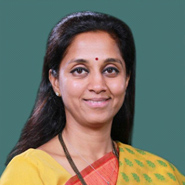 Supriya Sule is an Indian politician from the Nationalist Congress Party and currently a Member of Parliament (MP) in the 16th Lok Sabha (India's house of elected representatives). She is the daughter of the President of the Nationalist Congress Party, Sharad Pawar. In 2009, she contested the elections for the Baramati Lok Sabha constituency and won. This constituency was previously represented by her father. She was a Member of Parliament, representing Maharashtra in the Rajya Sabha.
Supriya Sule is an Indian politician from the Nationalist Congress Party and currently a Member of Parliament (MP) in the 16th Lok Sabha (India's house of elected representatives). She is the daughter of the President of the Nationalist Congress Party, Sharad Pawar. In 2009, she contested the elections for the Baramati Lok Sabha constituency and won. This constituency was previously represented by her father. She was a Member of Parliament, representing Maharashtra in the Rajya Sabha.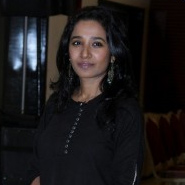 Tannishtha Chatterjee is a nationally rewarded actress for her performance in Dekh Indian Circus. She was a supporting actress in the movie Gaur Hari Dastaan representing a reporter who helped Mr. Das to get the Justice. She has played the role of a strong independent woman with a clear mindset about the world and a kind person from the heart in the movie but she seems to be pretty much the same in real life too. Ms. Tannishtha has always been captivated by the role of youth in improving the environment and she also has abundance of knowledge about the ways to take steps for a better environment. She has a very good sense of current environmental situations and tries her best to keep it clean and safe. She loves to interact with the young people and she is always curious to know their opinions on various topics. She has always loved to travel alone and take on the new adventures. Ms. Tannishtha is also fond of reading and loves to be with the nature than to be in the concrete jungle. She has done her majors in chemistry and has studied at the National school of Drama. She has been quite famous for her work in the west. She prefers to work on challenging roles.
Tannishtha Chatterjee is a nationally rewarded actress for her performance in Dekh Indian Circus. She was a supporting actress in the movie Gaur Hari Dastaan representing a reporter who helped Mr. Das to get the Justice. She has played the role of a strong independent woman with a clear mindset about the world and a kind person from the heart in the movie but she seems to be pretty much the same in real life too. Ms. Tannishtha has always been captivated by the role of youth in improving the environment and she also has abundance of knowledge about the ways to take steps for a better environment. She has a very good sense of current environmental situations and tries her best to keep it clean and safe. She loves to interact with the young people and she is always curious to know their opinions on various topics. She has always loved to travel alone and take on the new adventures. Ms. Tannishtha is also fond of reading and loves to be with the nature than to be in the concrete jungle. She has done her majors in chemistry and has studied at the National school of Drama. She has been quite famous for her work in the west. She prefers to work on challenging roles.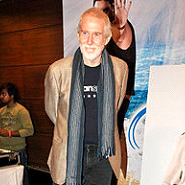 Thomas Beach Alter is an Indian actor of American descent. He is a television actor, is best known for his work in Bollywood, and has also worked in the theatre.
Thomas Beach Alter is an Indian actor of American descent. He is a television actor, is best known for his work in Bollywood, and has also worked in the theatre.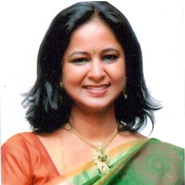 Dr. Vasudha Prakash is a social entrepreneur, special educator, counselor, traditional healer, hypnotherapist and most importantly a catalyst of change. Her professional experience spans about 30 years. She is the Founder-Director of V-Excel Educational Trust in Chennai, India, a successful NGO dedicated to providing education and resources for children with special needs. Through the various activities of V-Excel, now in its 11th year of operations, She have been able to positively influence individuals with special needs, their families, their communities and society as a whole.
Dr. Vasudha Prakash is a social entrepreneur, special educator, counselor, traditional healer, hypnotherapist and most importantly a catalyst of change. Her professional experience spans about 30 years. She is the Founder-Director of V-Excel Educational Trust in Chennai, India, a successful NGO dedicated to providing education and resources for children with special needs. Through the various activities of V-Excel, now in its 11th year of operations, She have been able to positively influence individuals with special needs, their families, their communities and society as a whole.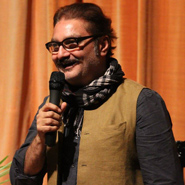 An extremely talented actor who took on this very challenging and diverse role which no one in the industry could have given justice to . Vinay Pathak is a bollywood actor working in this industry for more than 15 years. A graduate from the Allahbad university and then the university of New York at stony brook he started with acting in plays and then landed on TV shows and then his legendry movies.
An extremely talented actor who took on this very challenging and diverse role which no one in the industry could have given justice to . Vinay Pathak is a bollywood actor working in this industry for more than 15 years. A graduate from the Allahbad university and then the university of New York at stony brook he started with acting in plays and then landed on TV shows and then his legendry movies.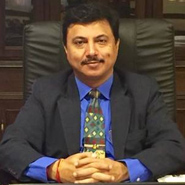 Yogender Chaudhry (IRS), a prominent name, in the youth development, is an Indian Revenue Service Officer of 1989 batch presently working as an Additional Commissioner of Income Tax in Delhi. He also worked in Delhi Police in Narcotic Control Bureau as Assistant Director handling co-ordination of various national & international agencies on drug enforcement matters. His chief Achievement was the youth development in rural and urban areas by promoting education and empowerment, while working as an Executive Director in NYKS (Nehru Yuva Kendra) from January 2004 to 2007.
Yogender Chaudhry (IRS), a prominent name, in the youth development, is an Indian Revenue Service Officer of 1989 batch presently working as an Additional Commissioner of Income Tax in Delhi. He also worked in Delhi Police in Narcotic Control Bureau as Assistant Director handling co-ordination of various national & international agencies on drug enforcement matters. His chief Achievement was the youth development in rural and urban areas by promoting education and empowerment, while working as an Executive Director in NYKS (Nehru Yuva Kendra) from January 2004 to 2007.
